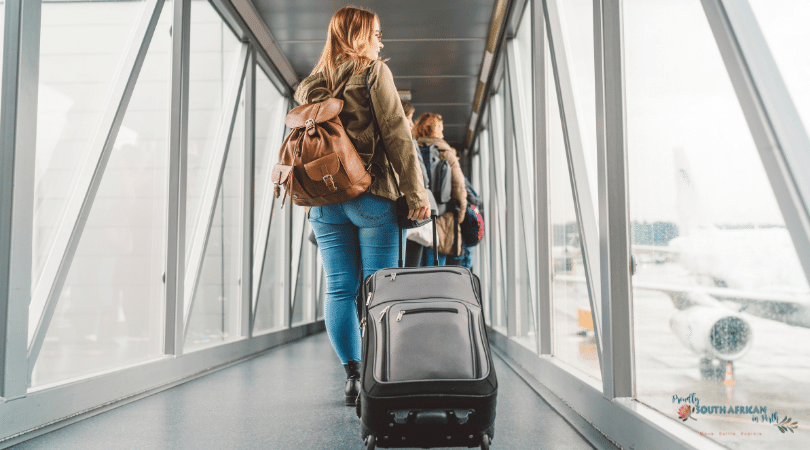Avoiding jet lag when travelling to Australia is something that we all want to do.
However, jet lag is one of those things that is pretty tricky to avoid completely. The first time we travelled to Australia (from the UK), I had no jet lag whatsoever. We landed at 1am, and on arriving at our accommodation we went straight to sleep. I woke up around 8am and felt absolutely fine, but everyone else slept until the afternoon and took a few days to recover.
Our next long haul trip was to Ireland a few years later, and I had awful jet lag on arrival there, and also when we returned to Australia – in fact all three of us were wide awake at 3am watching Finding Nemo!
While I’m no expert on jet lag, I’ve done several trips across multiple time zones now, so I’ve put together my top tips on avoiding jet lag when travelling to Australia.
What Is Jet Lag?
Jet lag is the fatigue you may experience during and after travelling through different time zones, often disrupting and confusing our body clocks and sleep patterns.
Being uncomfortable and sleep-deprived for a long period can compound the effects even further, leaving you drowsy, irritable and bad-tempered, which is the last thing you need when facing the sometimes scary-looking customs officials who are waiting for you at the end of your long journey.
Various other factors also contribute and exacerbate the effects of jet lag, often spoiling the first few days of a holiday, until one adjusts to the new time zone.
What Are The Common Symptoms Of Jet Lag?
Jet lag may affect travellers in many different ways.
Common symptoms may be drowsiness caused by sleep deprivation, feeling lethargic and irritable, headaches, digestive discomfort, impaired decision making or logical thinking and an overall feeling of fatigue.
Is Jet Lag Worse Travelling East Or West?
Flying eastwards is considered to be worse as sleep time comes earlier than what we are used to, but much depends on the individual and the actual landing time.
For instance, if you fly from London to Perth and land in the afternoon, your body clock still thinks it’s early morning. After an uncomfortable night on the plane, you will probably be looking forward to an early night to catch up on sleep.
On the other hand, if you land at 8pm Australian time, you may find it difficult to fall asleep as your body still thinks its midday.
12 Ways To Avoid Jet When Flying To Australia
There may not be one single remedy for jet lag, but there are numerous things you can do to minimise the effects, starting before even booking the flight.
Here are my top tips for avoiding jet lag when travelling to Australia.
1. Pick A Smart Time To Arrive
If possible, pick a flight that arrives during the day. This allows you to absorb some natural light, which helps you to adjust to the new time zone.
Forcing yourself to stay awake a little longer before falling asleep, is far easier than forcing yourself to sleep while being wide awake.
2. Drink Plenty Of Water
Planes draw air from outside, and at high altitudes, the air contains very little moisture, leading to dehydration, which may bring on headaches and make you feel fatigued and sleepy.
To offset that, ensure that you are well hydrated before flying and continue drinking plenty of water throughout the flight. This may lead to taking frequent trips to the bathroom, but that will also give you an opportunity to stretch your legs.
3. Bring Your Own Water Bottle
By packing your own water bottle, it will encourage you to drink throughout the flight. They can be refilled easily on the plane and at the water stations available at the airport, plus it’s free.
It also means you don’t have to ask the stewards for water every 5 minutes in those tiny plastic cups!
4. Avoid Caffeine & Alcohol
As hard as it may be, avoid caffeine, alcohol and energy drinks as far as possible as they are all dehydrating.
Alcohol may also put you to sleep at a time when you should be awake, disrupting your sleep pattern further and making you more tired at the end of the journey. A hangover + jet lag + customs officials = a bad combination.
Drinking a good cup of coffee however, can be a great way to perk up after a long flight.
5. Exercise Before Your Flight
While it’s essential to be fully organised and mentally and physically relaxed for your journey, it’s equally important to do some exercise and work up a sweat before a long-haul flight.
Exercise stimulates endorphins and can improve sleep quality. Going for a brisk walk or run, or doing some cardio if that’s your thing, is a great idea to help you avoid jet lag.
6. Choose Your Food Wisely
Resist the temptation of eating everything the stewards puts in front of you, and avoid heavy, fatty foods that may cause gas and give you that “jet bloat”. Keep away from breads, biscuits, and rich desserts, sticking to lighter foods with fruit and vegetables.
A good way of skipping those large “bloaty” dinners they often serve on late night flights immediately after take-off, is to eat something light at the airport, an hour or two before boarding.
7. Invest In Noise Cancelling Headphones
If you’re a light sleeper, the standard eye masks and ear plugs supplied by the airline may not be adequate. In that case, a set of noise-cancelling headphones may be an investment well worth making.
Between the drone of the plane and the noise of other passengers moving around, noise-cancelling headphones can make all the difference to your sleep quality.
On our first flight to Australia, we had a young man who had Tourette’s syndrome sitting near us, and he would randomly shout out during the flight. He was so lovely and apologetic and I felt really bad for him. But a good pair of noise-cancelling headphones would have really been good to have then.
8. Pack A Great Travel Pillow
An equally important investment to make is a decent travel neck pillow. There are loads on the market, so it’s important to choose one that provides the right kind of support for your neck and is comfortable for long periods if you’re hoping to sleep.
9. Stretch & Move Around
Sitting in one position for long periods of time is never good for anyone, but particularly those with bad circulation.
Try to do some foot and leg stretching exercises in your seat regularly (at least every hour, if not more) to improve your circulation, or get up and have a walk around every couple of hours.
Wearing quality compression socks or stockings are also good for those who have circulation issues.
10. Change Your Watch When You Board
If you wear a watch, change it to the time of your destination once you are on board the plane and forget about your local time on departure.
This will enable you to immediately start adjusting to the new time zone. Most phones auto adjust as soon as they pick up the signal from your destination though so you may want to wait until you land before messing around with your phone settings.
11. Consult Your Doctor About Medications
If you’re planning to take any medications to help you sleep or travel, always consult your doctor or pharmacist first and try any new medication at home before you go, especially for kids.
Sleeping pills can sometimes have the opposite effect on certain people, ironically keeping you awake instead of helping you sleep. Generally, sleeping pills may not be the best idea, as you may still be groggy when you land and it may also cause a problem if there’s an emergency to deal with.
12. Stay Awake Until A Normal Bed Time On Arrival
On arrival, try to stay awake until a normal bedtime. If it’s still light, go outdoors.
By exposing yourself to sunlight, it can help to reset your body clock to the new time zone.
Abstain from consuming alcohol and ensure you remain hydrated for a few days after arriving, if you can – but let’s face it, you may well want to celebrate your arrival in Australia with a glass of bubbles, and so you should!
Do you have any other tips on avoiding jet lag when travelling to Australia? Besides New Zealand, it’s one of the most far flung places to travel from pretty much every continent, so while you may not be able to avoid the effects of jet lag completely, these tips should at least help you keep them to a minimum.
For more travel tips, read my post about things you need to pack in your hand luggage when you emigrate.






No Comments